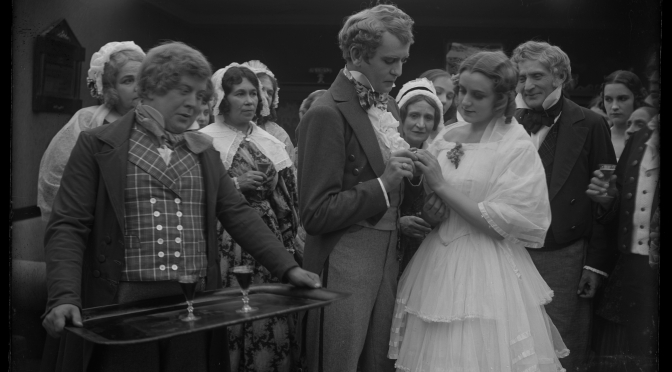What do you need to make a great movie? At the end of a week at Pordenone, is it the images that burn in your mind, or the stories that tug at your heart? Today we had more films that wooed us with visual than narrative pleasure, making for an exhilarating lineup that celebrated the artistry of silent cinema.
Let us begin at the end – with the gala performance of The Chess Player (Raymond Bernard, 1927), restored by Photoplay in 1990 and playing here with a superb orchestral rendition of Henri Rabaud’s original score. This story of revolutions and robotics is a tremendous one, but it’s the images that scorch: The automaton army raising its sabers in unison; Edith Jehanne surveying the wreckage through a broken window; the pyrotechnic display of the firing squad in a snowy palace courtyard. A wonderful, rousing, and visually thrilled film that provided a suitably grand flourish to a week that has revelled in epic excitement.
A case in point: the tremendous The Last of the Mohicans (1920), one of those Canon Revisited films that is tucked away in an unassuming slot in the schedule and acts like a shot in the arm to the jaded festivalgoer. I had not seen it before and my expectations were somewhere around the middle, but this is wonderful stuff. Amid the action (which is wonderfully staged and always nailbiting) what emerges is an unexpectedly tragic and touching romance – one you wouldn’t go looking for in material like this, but there you go. I was moved. And of course that cliffhanger sequence is the best we have seen all week and we have seen some excellent ones.
Continue reading Le Giornate del Cinema Muto 2018: Pordenone Post No 8







